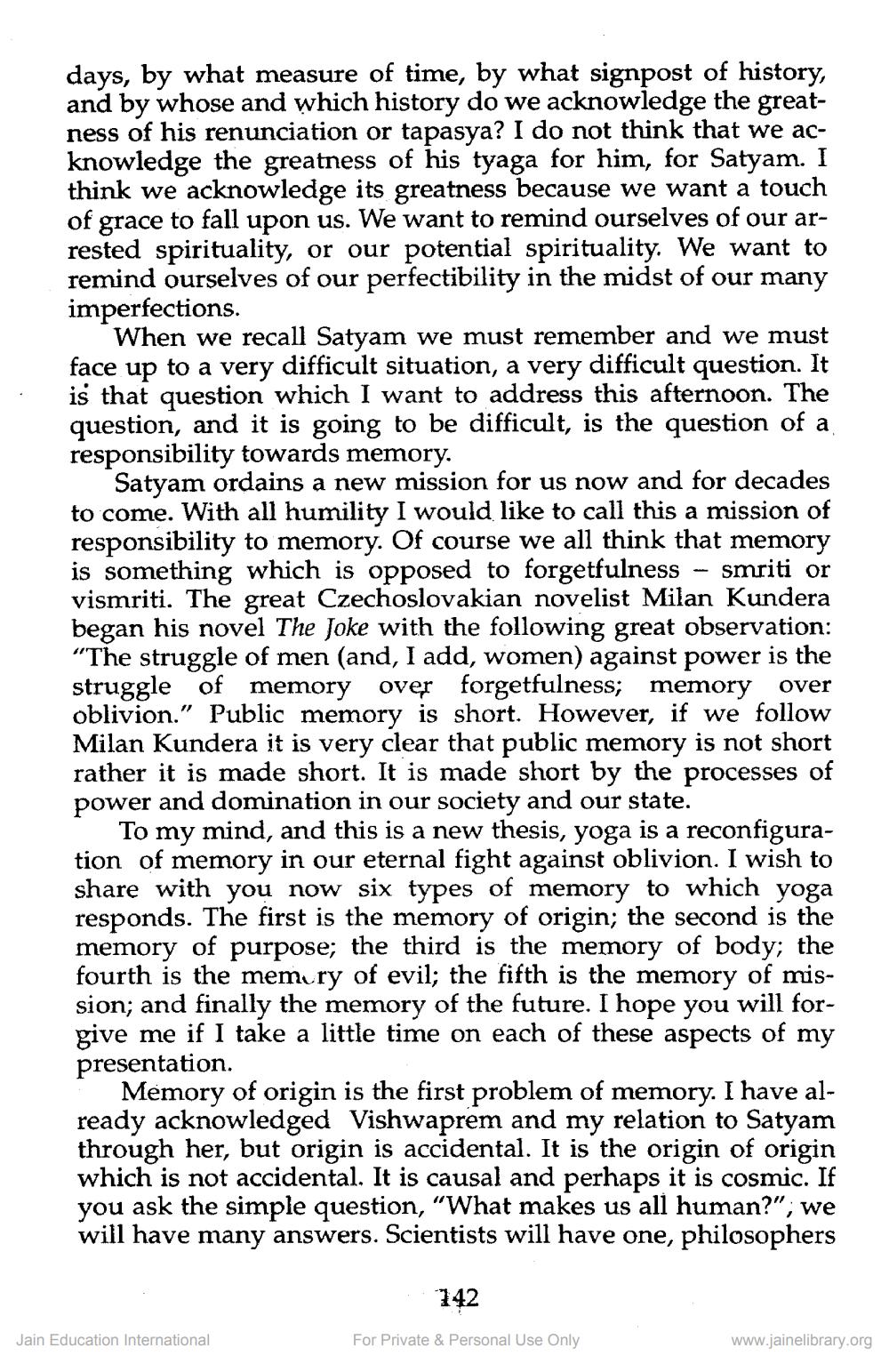________________
days, by what measure of time, by what signpost of history, and by whose and which history do we acknowledge the greatness of his renunciation or tapasya? I do not think that we acknowledge the greatness of his tyaga for him, for Satyam. I think we acknowledge its greatness because we want a touch of grace to fall upon us. We want to remind ourselves of our arrested spirituality, or our potential spirituality. We want to remind ourselves of our perfectibility in the midst of our many imperfections.
When we recall Satyam we must remember and we must face up to a very difficult situation, a very difficult question. It is that question which I want to address this afternoon. The question, and it is going to be difficult, is the question of a responsibility towards memory.
Satyam ordains a new mission for us now and for decades to come. With all humility I would like to call this a mission of responsibility to memory. Of course we all think that memory is something which is opposed to forgetfulness - smriti or vismriti. The great Czechoslovakian novelist Milan Kundera began his novel The Joke with the following great observation: "The struggle of men (and, I add, women) against power is the struggle of memory over forgetfulness; memory over oblivion." Public memory is short. However, if we follow Milan Kundera it is very clear that public memory is not short rather it is made short. It is made short by the processes of power and domination in our society and our state.
To my mind, and this is a new thesis, yoga is a reconfiguration of memory in our eternal fight against oblivion. I wish to share with you now six types of memory to which yoga responds. The first is the memory of origin; the second is the memory of purpose; the third is the memory of body; the fourth is the memury of evil; the fifth is the memory of mission; and finally the memory of the future. I hope you will forgive me if I take a little time on each of these aspects of my presentation.
Memory of origin is the first problem of memory. I have already acknowledged Vishwaprem and my relation to Satyam through her, but origin is accidental. It is the origin of origin which is not accidental. It is causal and perhaps it is cosmic. If you ask the simple question, "What makes us all human?"; we will have many answers. Scientists will have one, philosophers
142
Jain Education International
For Private & Personal Use Only
www.jainelibrary.org




